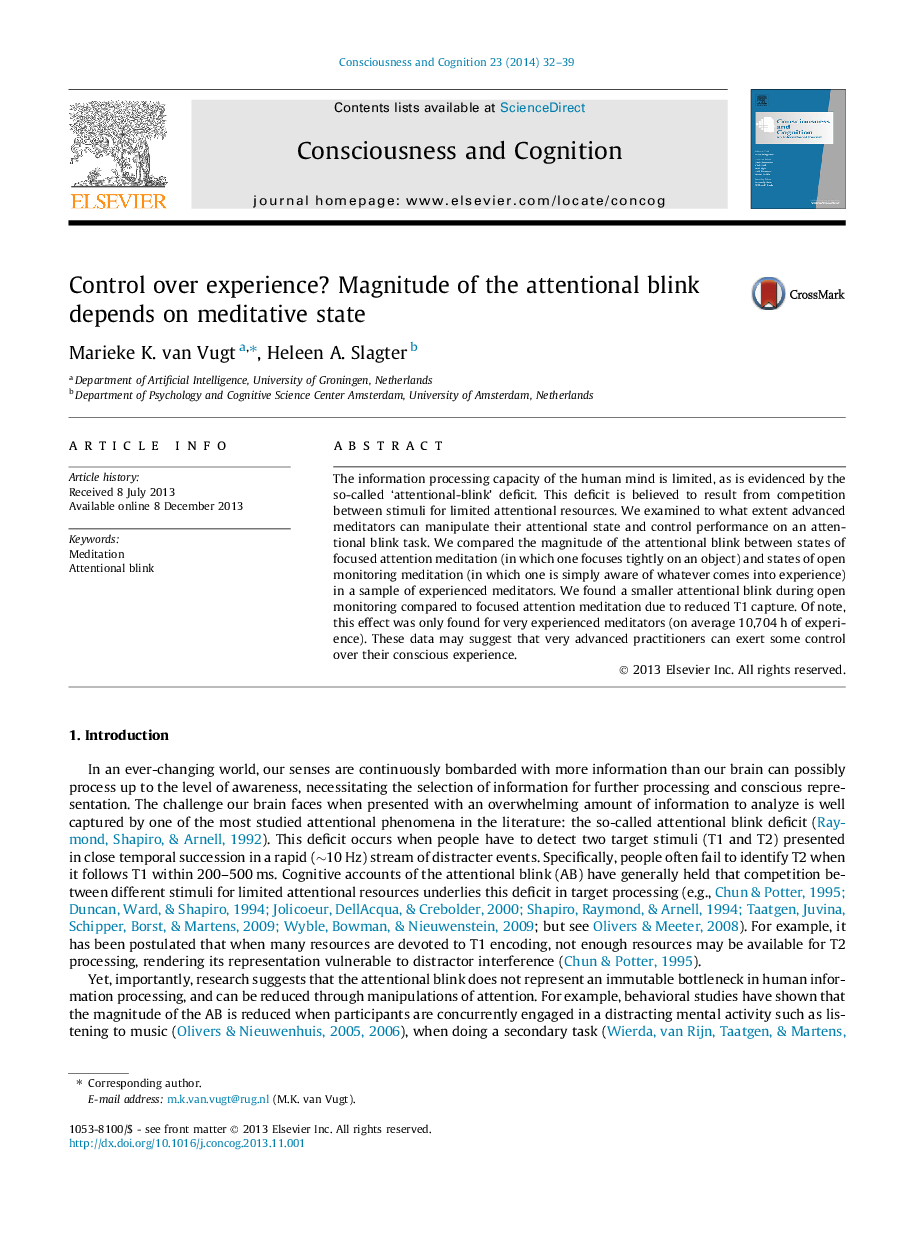| Article ID | Journal | Published Year | Pages | File Type |
|---|---|---|---|---|
| 927593 | Consciousness and Cognition | 2014 | 8 Pages |
•Meditation has been associated with a reduction in the attentional blink (AB).•State of open monitoring meditation results in smaller AB than focused attention meditation.•AB reduction only for more experienced practitioners.
The information processing capacity of the human mind is limited, as is evidenced by the so-called ‘attentional-blink’ deficit. This deficit is believed to result from competition between stimuli for limited attentional resources. We examined to what extent advanced meditators can manipulate their attentional state and control performance on an attentional blink task. We compared the magnitude of the attentional blink between states of focused attention meditation (in which one focuses tightly on an object) and states of open monitoring meditation (in which one is simply aware of whatever comes into experience) in a sample of experienced meditators. We found a smaller attentional blink during open monitoring compared to focused attention meditation due to reduced T1 capture. Of note, this effect was only found for very experienced meditators (on average 10,704 h of experience). These data may suggest that very advanced practitioners can exert some control over their conscious experience.
